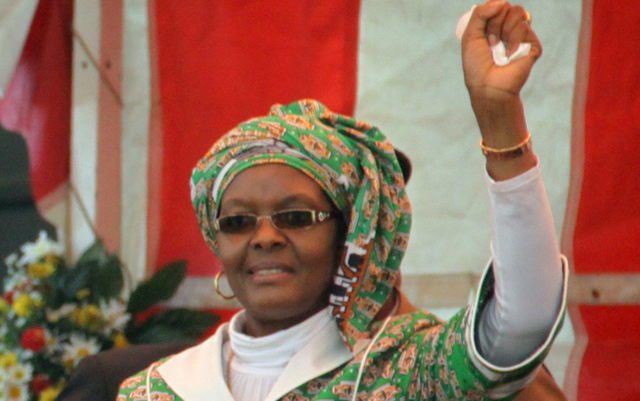Addressing human needs curbs strife — PV

Prosper Ndlovu in Victoria Falls
ZIMBABWE National Army (ZNA) Commander Lieutenant-General Philip Valerio Sibanda says African governments should address human security issues such as poverty, health and unemployment to curb growing incidents of strife and political instability on the continent. Officially opening the 31st Sadc Defence Intelligence Standing Committee (Disc) meeting here yesterday, Lt-Gen Sibanda said focusing on political power alone without improving human standards of living was not helpful as it leaves multitudes suffering, thus brewing tension in society.
“Contemporary challenges facing our region and mankind in general centre on human security. These challenges are often ignored as they are often relegated to the periphery. Our focus has traditionally been entrenched on issues of politics, defence and security. In recent times, human security has taken centre stage,” he said.
“The burden of conflicts results in under-development, poverty, hunger and disease. Equally, mismanagement of our heritage, God-given resources, and indeed our governed territories can create these adverse human conditions. Global warming with its attendant consequences, depleting water resources, deforestation, desertification are challenges that confront governments.
“Poaching has also become a menace that poses a potential ecological disaster. Unemployment is yet another security challenge facing our governments with potential for instability. Drug trafficking and illegal migration and the threat of terrorism are equally issues of grave concern to human security.”
Lt-Gen Sibanda said while the meeting came at a time when the political and security situation in our sub-region was relatively stable, the region was concerned about political tension in eastern DRC and Lesotho.
He commended South Africa, Malawi, Mozambique and recently Botswana for conducting successful and peaceful polls.
“Sadc remains alive to the situations in the two countries and efforts continue to be exerted towards finding lasting solutions to these situations,” said Lt-Gen Sibanda.
“I believe Disc needs to analyse the current security situation in the DRC and advise the defence sub- committee on what further action needs to be taken to permanently end the instability in the eastern DRC.”
He said it was the role of the intelligence and defence organ to advise leadership on key decisions regarding attaining lasting peace and security through proper response to humanitarian issues.
“Disc has provided indispensable service to the Organ on Politics, Defence and Security in alerting it on flashpoints of potential insecurity and disorder. It remains a critical component of the organ in the maintenance and sustenance of peace, security and stability in the region and beyond,” he said.
“It’s my view that it’s time that you also turn your attention to the critical elements that I’ve highlighted above. We must now, in addition to the traditional focus on conflicts, security and destabilisation, pay attention towards multipliers that can positively change the human condition, in order to enhance the quality of life.”
Lt-Gen Sibanda said a life free from hunger, poverty and disease was a desire for all and urged quick efforts towards consolidating and turning the region’s resources to benefit and improve human security.
“These are the challenges we face and I challenge Disc to equally focus on these areas,” he said.
Chairperson of the Organ on Politics, Defence and Security, Lt-Gen Carlos Migual Sousa Filipe from Angola commended the fruitful deliberations by delegates from the regional bloc and said their input will be used to advise leadership on how to address issues of concern.
“I applaud the hard work done here since Sunday. I hope the recommendations we make here will produce the kind of intelligence related to the current developments in the region so that we can assist the decision makers in resolving issues of concern,” he said.










Comments